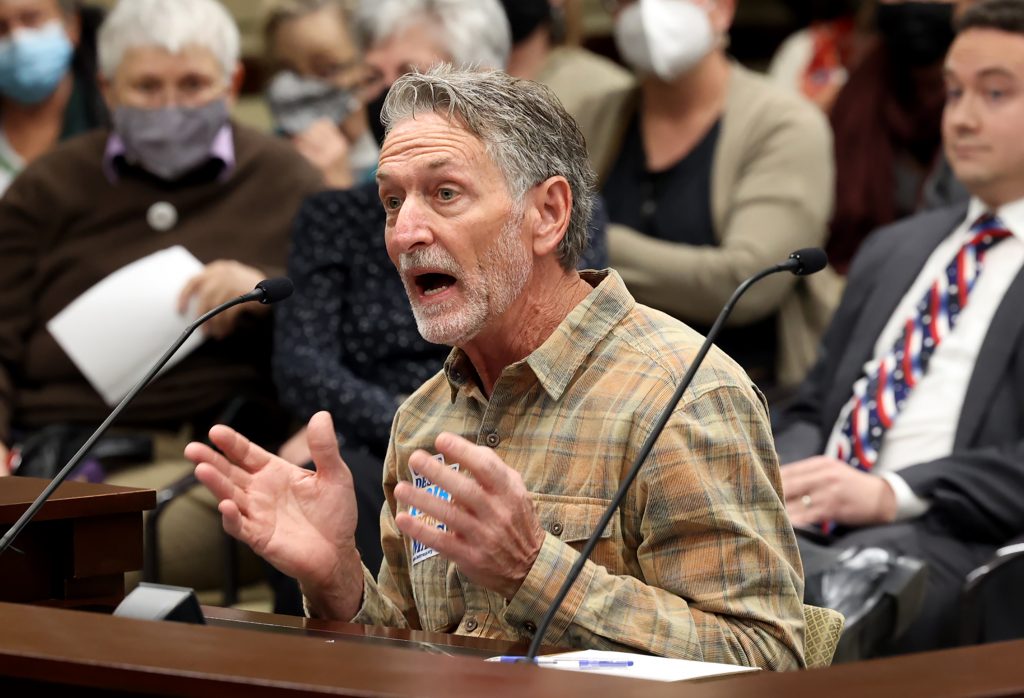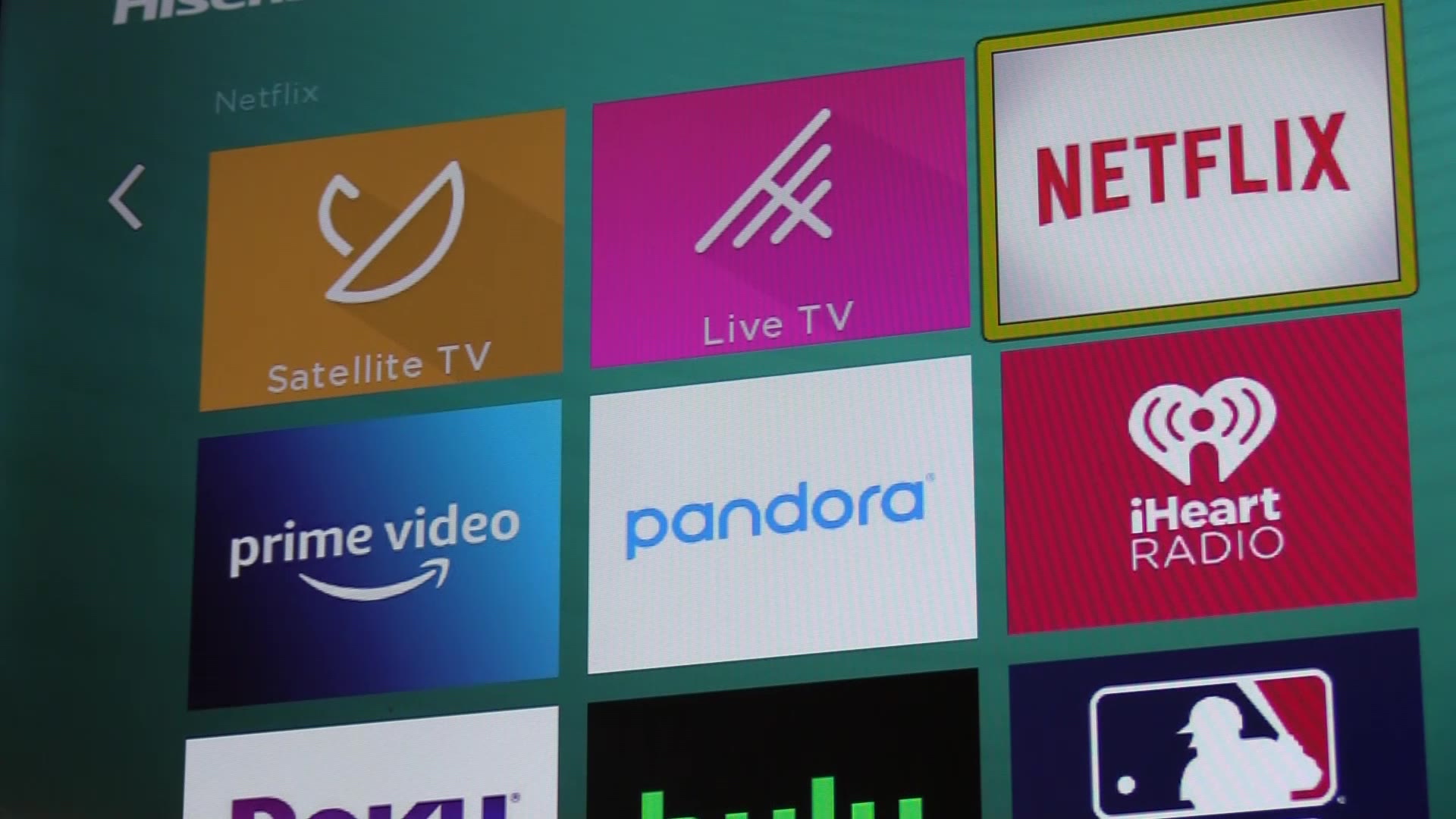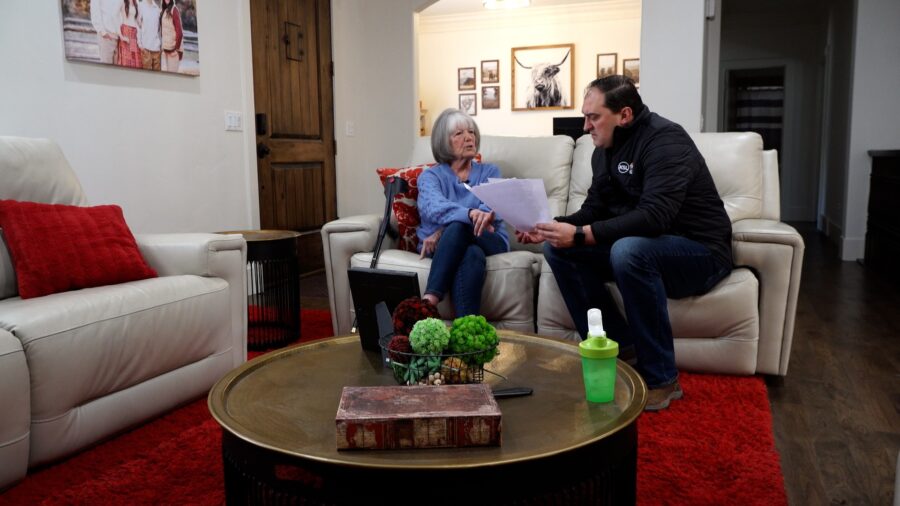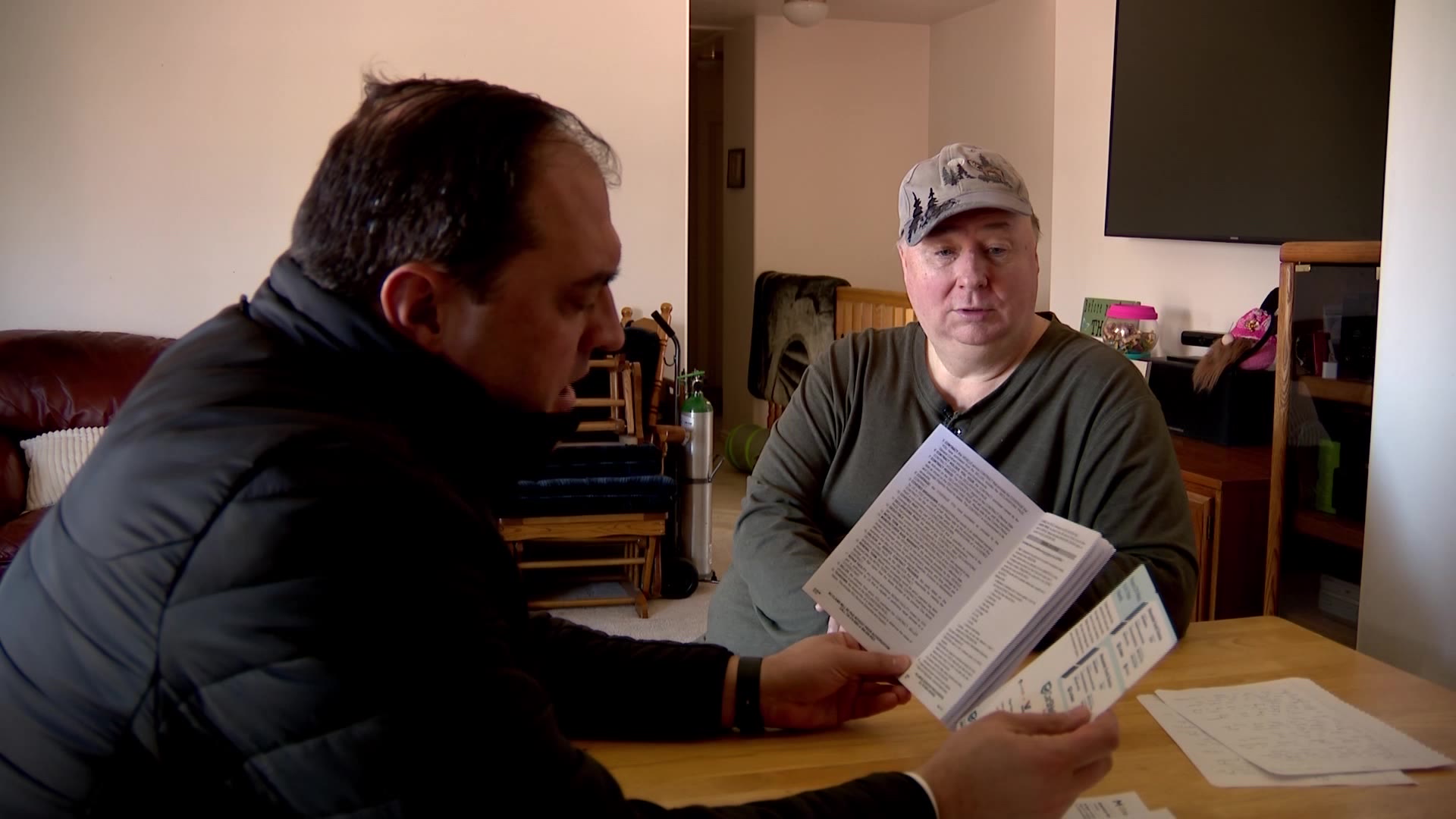Lawmakers received hundreds of emails in support of the independent redistricting commission. Why didn’t they listen?
Jan 18, 2022, 10:25 PM | Updated: Jun 19, 2022, 9:57 pm
“It provides accountability to the redistricting process.”
“We need representation that understands the diversity of this area.”
“As a voter in a rural area I’m entirely uncomfortable with my vote being used to dilute the power of another.”
These are just some of the hundreds of emails obtained by the Deseret News and KSL Investigates team that show an outpouring of disapproval from constituents to lawmakers regarding the recent, highly controversial redistricting process.
RELATED: Who supports Utah’s new congressional map? It’s complicated
Will Utah’s new voting districts see a court challenge? Lawsuits in other states provide possible framework
The Utah Legislature and Gov. Spencer Cox recently gave a green light to the state’s new political boundaries, cementing voting districts for the next 10 years.
The districts were set by lawmakers, not by the independent commission that was established after a 2018 voter approved ballot measure.
It was a contentious process that drew hundreds of Utahns to the Capitol to criticize the legislative redistricting committee’s proposed maps, urging them to instead adopt maps proposed by the independent commission.
Despite the outcry, the Republican-controlled panel approved its own maps, and about 24 hours later the Legislature accepted them during a special session.
Lawmakers received thousands of emails leading up to the committee’s recommendation — the Deseret News and KSL-TV received 2,100 emails sent to members of the House, and 1,679 to members of the Senate from Oct. 25 to Nov. 8, the day lawmakers gave their own maps a stamp of approval.
An analysis of the emails shows that 930 people reached out to lawmakers during this timeframe asking that the independent commission’s maps be chosen, or that they didn’t approve of the lawmakers maps.
Meanwhile, 11 people sent emails approving of the maps lawmakers drew.
A common refrain from political activists is to “write your representative.” Many Utahns did, in the face of what they thought was gerrymandering. Considering the outpouring of civic engagement, why didn’t lawmakers listen to their constituents?
‘A holistic look’ or ‘seriously gerrymandered’ maps?
Lawmakers had been working on the redistricting process for several years by the time more than 100 Utahns came to the state Capitol to decry their maps. Some sat on the legislative committee in 2011, the last time the state drew new boundaries.
Could it be that lawmakers didn’t listen to the crowd at the Capitol — and the over 900 Utahns who penned an email — because they simply know better than their constituents?
“I don’t think I can say we know better. But I can say that for the majority, we had to take a holistic look,” said Sen. Scott Sandall, R-Tremonton, the co-chair of the Legislative Redistricting Committee.
Sandall says the majority of comments he received were regarding the congressional map, which splits Salt Lake County into four districts. Some of the comments he received were from Democrat voters essentially advocating for gerrymandering.
“Honestly, they would say things like, we want one district that is only in Salt Lake County, so that we can have the Democrats win,” Sandall paraphrased. “My comment to them was that pretty much is the definition of gerrymandering.”
Ask a member of Utah’s Democratic minority, however, and you’ll get a much different story. In the days after the maps were approved, House Minority Leader Brian King, D-Salt Lake City, called the congressional map “seriously gerrymandered.”
Tonight we saw about ten minutes of debate to pass a seriously gerrymandered Congressional map out of the House of Representatives that Utahns will have to live with for the next ten years. #utpol 1/
— Rep. Brian S. King (@RepBrianKing) November 10, 2021
King told the Deseret News and KSL-TV the other three maps — boundaries for the state House, Senate and school board — had “a much greater level of bipartisan input.”
But the congressional map?
“That was not a hard vote,” said King who, along with all of his Democratic colleagues, voted against the new boundaries. “I thought that there was very little discussion with the public or with Democrats about the congressional maps that we were asked to vote on. They came out relatively late in the process, we didn’t have more than a couple of days to look at them and consider them.”
The congressional map that lawmakers would eventually recommend actually originated from the independent commission, Sandall says. Dubbed the “green map,” it was originally submitted by a Utah State University student, then workshopped by the independent commission.
But it was ultimately dropped by the commission, which recommended a different map submitted by a member of the public — Sandall says that map was drawn using political data, which the redistricting process was intended to be devoid of.
“That green map was basically the genesis of where we went with the congressional map that the legislature adopted,” he said.
‘A rural and urban mix’
Sandall says one of the key parameters for a political boundary was a “rural and urban mix.”
Much of the urban Wasatch Front relies on rural Utah, Sandall says — whether it’s for water, mineral extraction, oil and gas production or electricity.
“In addition to that, urban Utah recreates in rural Utah,” he told the Deseret News and KSL-TV. “So we felt that it was important that each of our congressional people have a footprint in both the urban and the rural areas.”
But according to emails sent to lawmakers, several political experts who spoke with the Deseret News and KSL-TV, and even some politicians in rural Utah, that approach to redistricting could actually drown out the voters in the remote corners of the state.
“I feel like what the legislature did was dilute our voice, as a rural community,” says Shawn Dustin, the former mayor of Nibley in northern Utah’s Cache Valley.
Here's the congressional map that has now been approved by the full Utah Legislature #utpol #utleg
Link to map: https://t.co/poGcKxmw7A pic.twitter.com/gL83V7C14H
— Katie McKellar (@KatieMcKellar1) November 10, 2021
Dustin was one of over 50 Utah mayors who participated in a New York University professor’s study asking what they would like to see in their district. Most of them echoed what Dustin said — rural Utah has an entirely separate list of issues, and should have entirely separate representation.
“I do have a problem with people from the Wasatch Front attempting to represent the interests of areas where they don’t reside and where they don’t really have contact,” said Dustin.
The former mayor pointed to the Bear River Compact, which allocates water to Cache Valley and Box Elder County, as an example. The compact also includes parts of Wyoming and Idaho.
“Now the congressional district that is going to be involved in resolving a lot of this includes interest from both the Great Salt Lake and from northern Utah where that water is,” he said. “It puts our congressman, whoever that is, in a very difficult position.”
Shielded from political repercussions?
By most accounts, the redistricting process was not particularly popular. Emails and public comments aside, a Deseret News/Hinckley Institute of Politics poll found that only 25% of respondents supported the new congressional districts. Roughly 32% opposed the map.

Dave Timmerman expresses his opinion on redistricting maps during a Legislative Redistricting Committee at the Capitol in Salt Lake City on Monday, Nov. 8, 2021. (Scott G Winterton, Deseret News)
But 43% responded “don’t know.”
Katie Wright, executive director of Better Boundaries, the group behind the 2018 ballot measure, says that’s the main challenge with redistricting.
“It’s wonky, it’s complex, and it only happens once a decade. And so it is not surprising to us that there’s a large portion of Utahns who aren’t deeply engaged in the process,” she said.
That apathy among the public could explain why lawmakers in Utah — and around the country — draw boundaries that seem politically unpopular to a vocal minority.
“If a significant percentage of voters are not paying attention to this issue … then lawmakers may feel emboldened, especially if their choices lead to increased success for the majority political party within the state,” said Chris Karpowitz, political science professor at BYU.
Karpowitz says redistricting and perceived gerrymandering could also lead to less civic engagement, with some voters disillusioned by the process or inundated by messaging that suggests their voice doesn’t matter.
“It’s concerning if what it causes is an increase in cynicism,” he said.
And lastly, some politicians may have literally shielded themselves from political repercussions with the new boundaries.
“When we think about accountability, we typically think there’s some possibility that elected officials will be voted out of office. And increasingly, what seems to be happening is elected officials are constructing the districts to insulate themselves from those pressures, and also to advantage one party over the other,” Karpowitz told the Deseret News and KSL-TV.
Proposition 4 and the Utah Constitution
Shortly after its inception, lawmakers questioned whether the independent redistricting commission was actually permitted under the Utah constitution, which gives the responsibility to the Legislature.
There’s a chance the initiative could have been deemed unconstitutional “simply because it took the constitutional power of making the lines from the legislative body and placed it to an independent commission,” says Sandall.
So lawmakers met with Better Boundaries, the group behind the 2018 ballot initiative, and amended the proposition so it would have more of an “advisory role,” Sandall said, to allow it to move forward under the state constitution.
Sandall says the public may have assumed that the maps developed by the independent commission would be automatically adopted by the state. “That was really never the anticipation from what I could read,” he said.
Some voters compared the amendment to the Legislature’s handling of Proposition 2, a 2018 ballot initiative to legalize medical marijuana. The law was overhauled in a special session with a new bill that spelled out which medical providers can recommend marijuana and narrowed definitions for qualifying illnesses. Some advocates for the proposition called the special session a power grab.
Karpowitz said that voter-approved ballot initiatives often need to be refined by lawmakers — “That’s definitely an important role for the legislature to play,” he said.
“The question that is arising in Utah is a slightly different one. It is, has the Legislature concentrated power in itself so much that it is unwilling to listen to the voice of the voters when they articulate their preference at the ballot box? … Where is the line between refining and enlarging the public views and disregarding the public views?”
What’s next?
After the maps were approved by the Utah Senate, Utah Gov. Spencer Cox said he had no intentions of vetoing them. Instead, he told frustrated Utahns to focus first on electing members of their party to the Utah Legislature. link
“I think the governor caught a lot of flack, rightly so, when he said that,” said King, who told the Deseret News and KSL-TV that “the very process that we went through in fact has a tremendous impact on the ability of Utahns to vote in different people to represent them.”
Is the deck stacked against Utah Democrats? “No question” with the congressional maps, King says. But he encouraged Utahns to stay engaged.
“As frustrating as it is, there’s no good alternative to being involved in the process.”
Not long after the legislative committee recommended the maps, Better Boundaries launched a PAC seeded with $50,000 with the intention to “defeat incumbents who demonstrated that they are more interested in self-preservation and partisan politics than serving constituents,” according to the group’s website. And now, the group might challenge the districts in the courtroom.
Better Boundaries is currently taking donations for a legal challenge on its website, but in an earlier interview with the Deseret News, executive director Katie Wright stressed the group is still in its exploratory phase.
“We take really seriously the idea of pursuing a lawsuit. We certainly will never invest any of our donors’ funds in anything that’s frivolous,” said Wright. “So we are doing an assessment to see if there is an achievable or feasible path. And if there is, we will look towards pursuing a lawsuit.”
Deseret News’ Katie McKellar and KSL-TV’s Mike Headrick contributed to this report.













